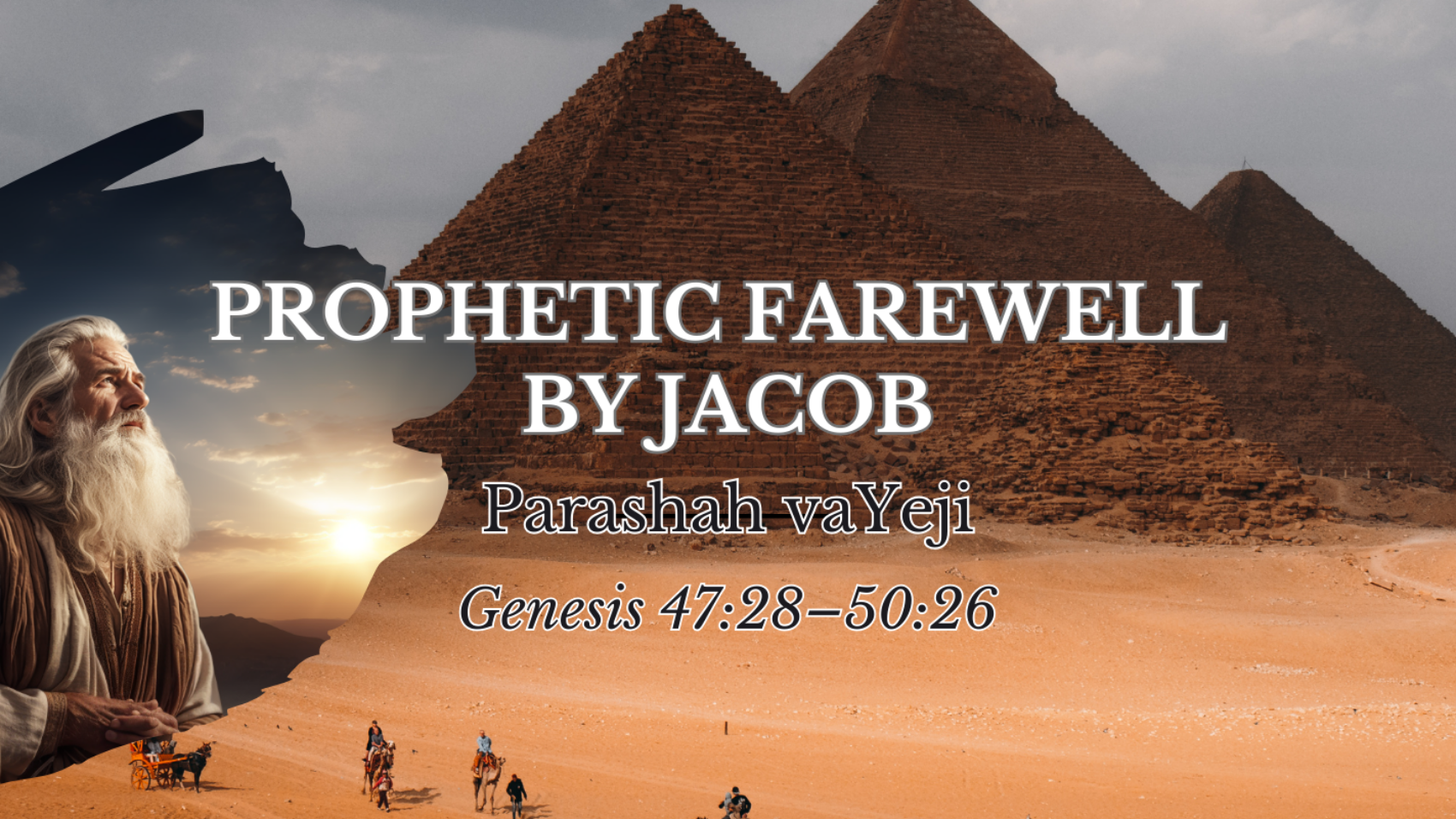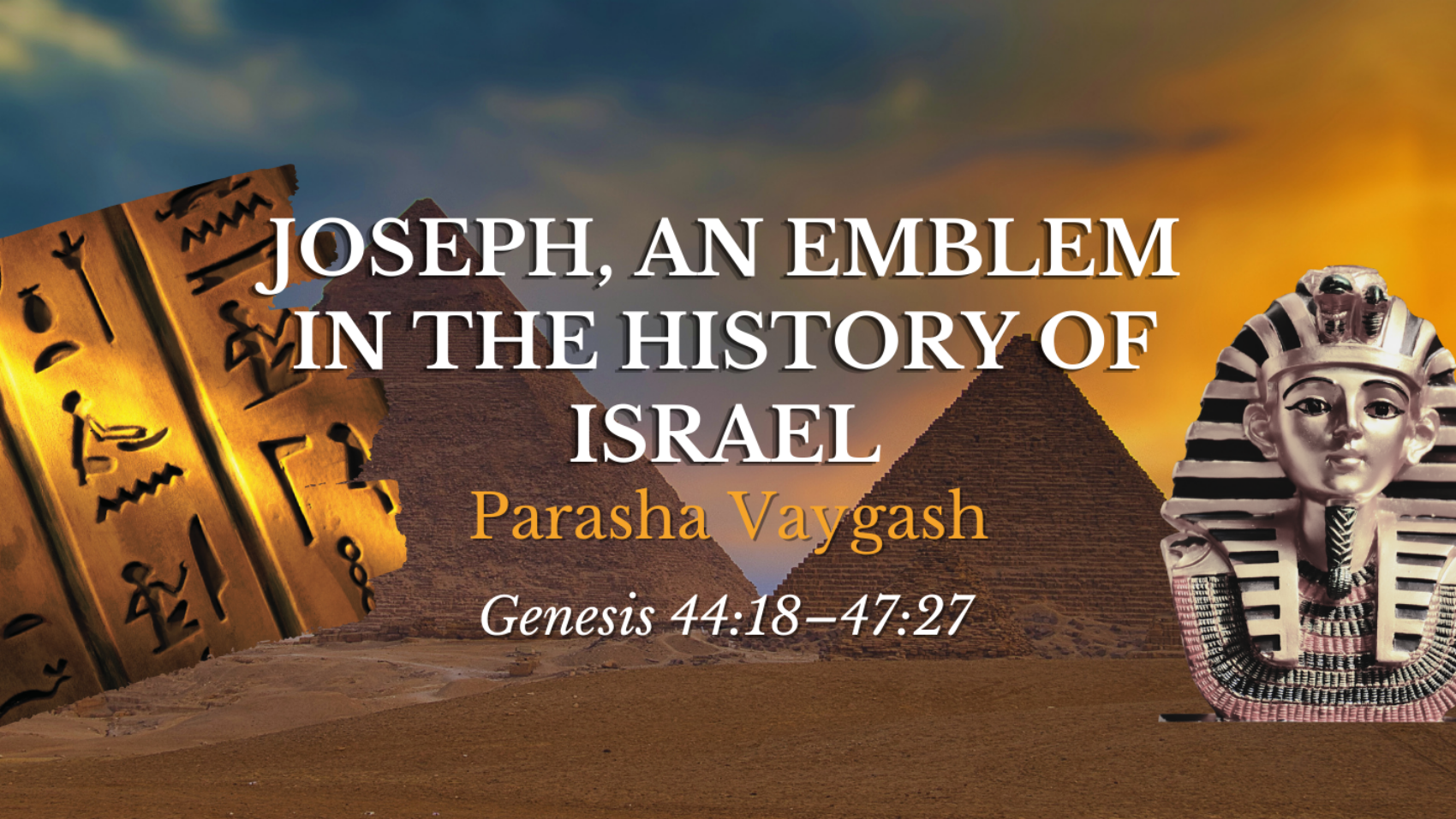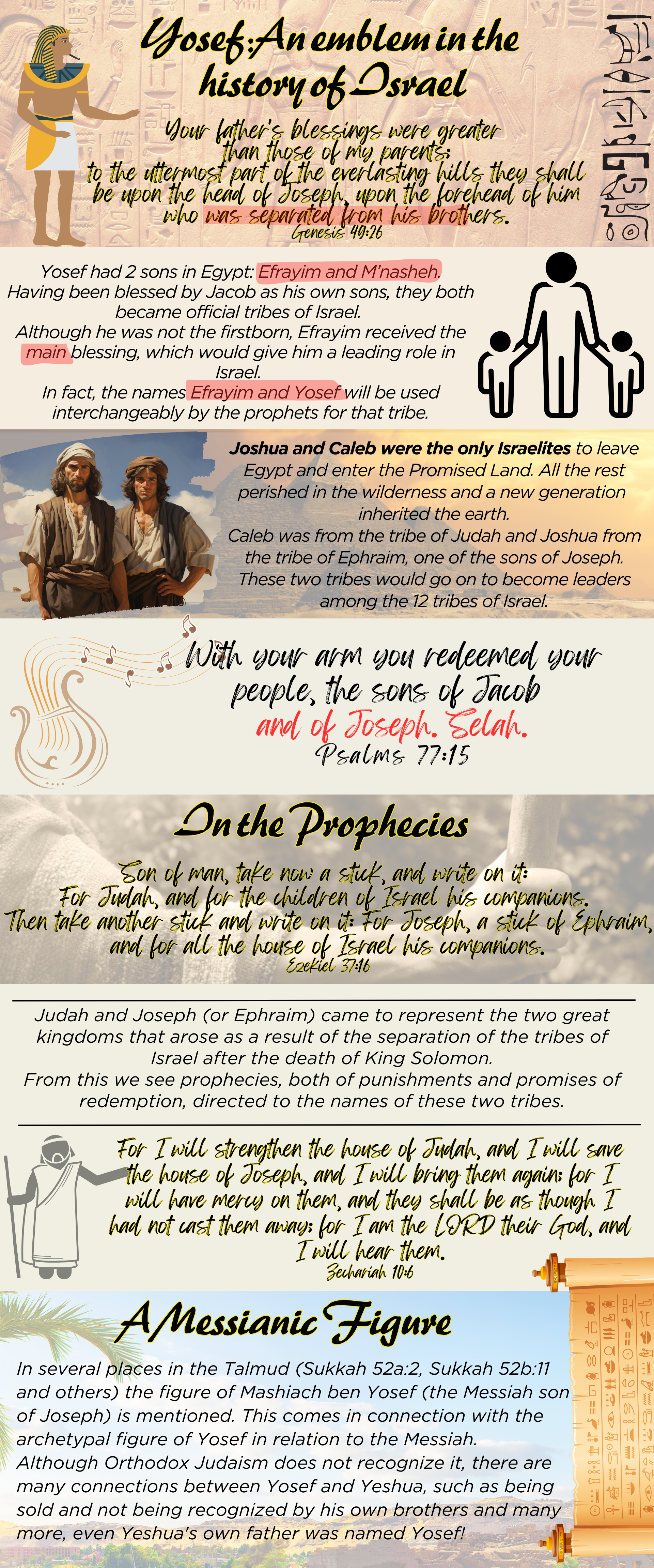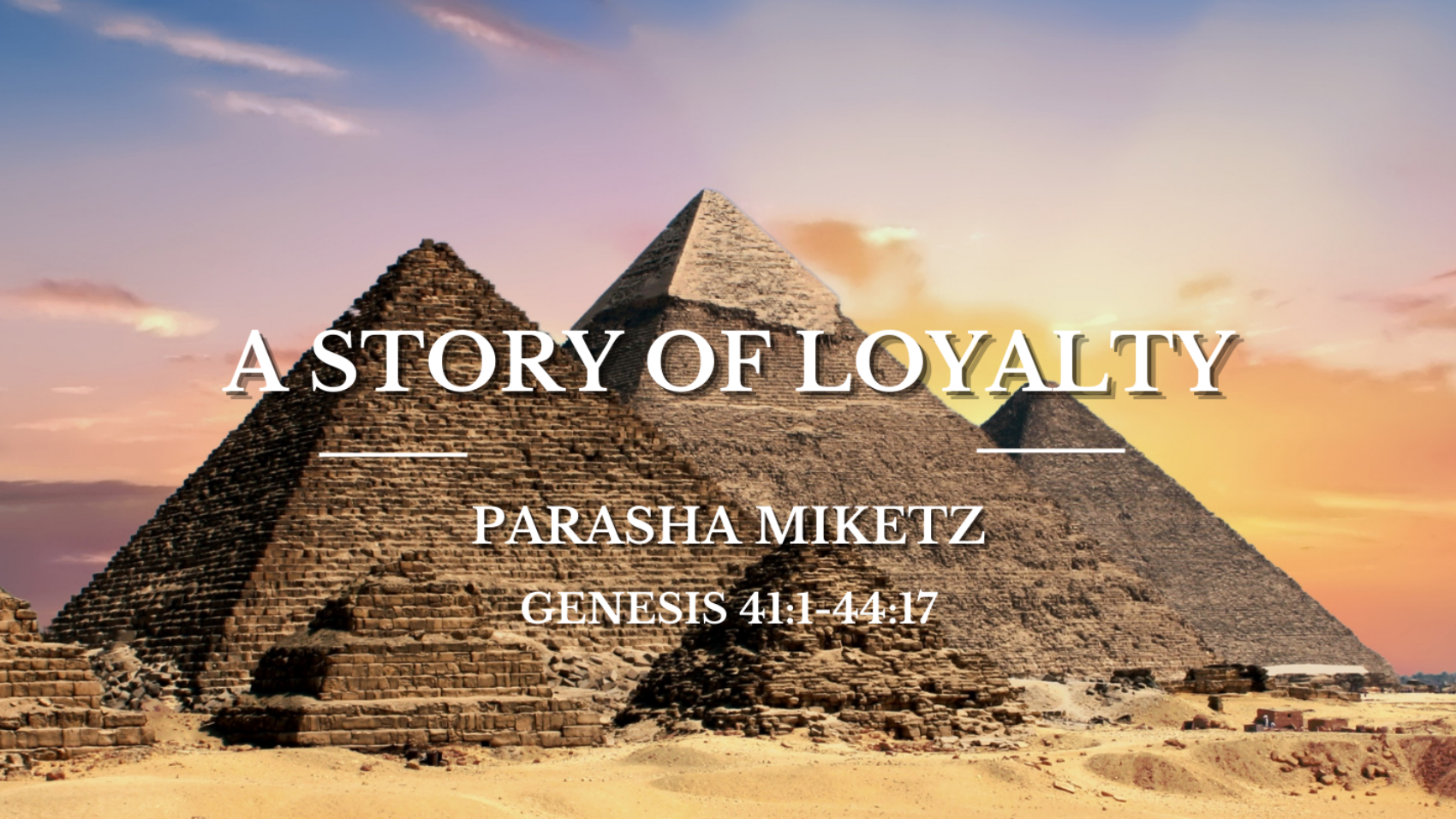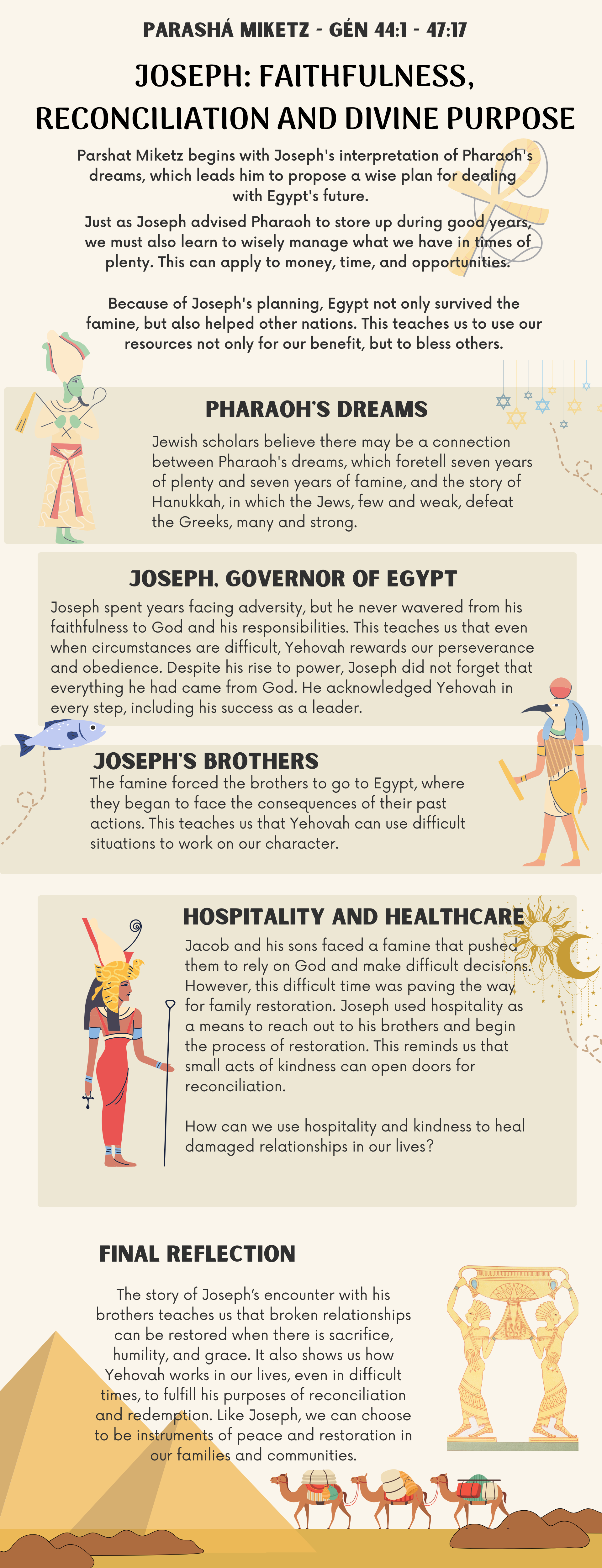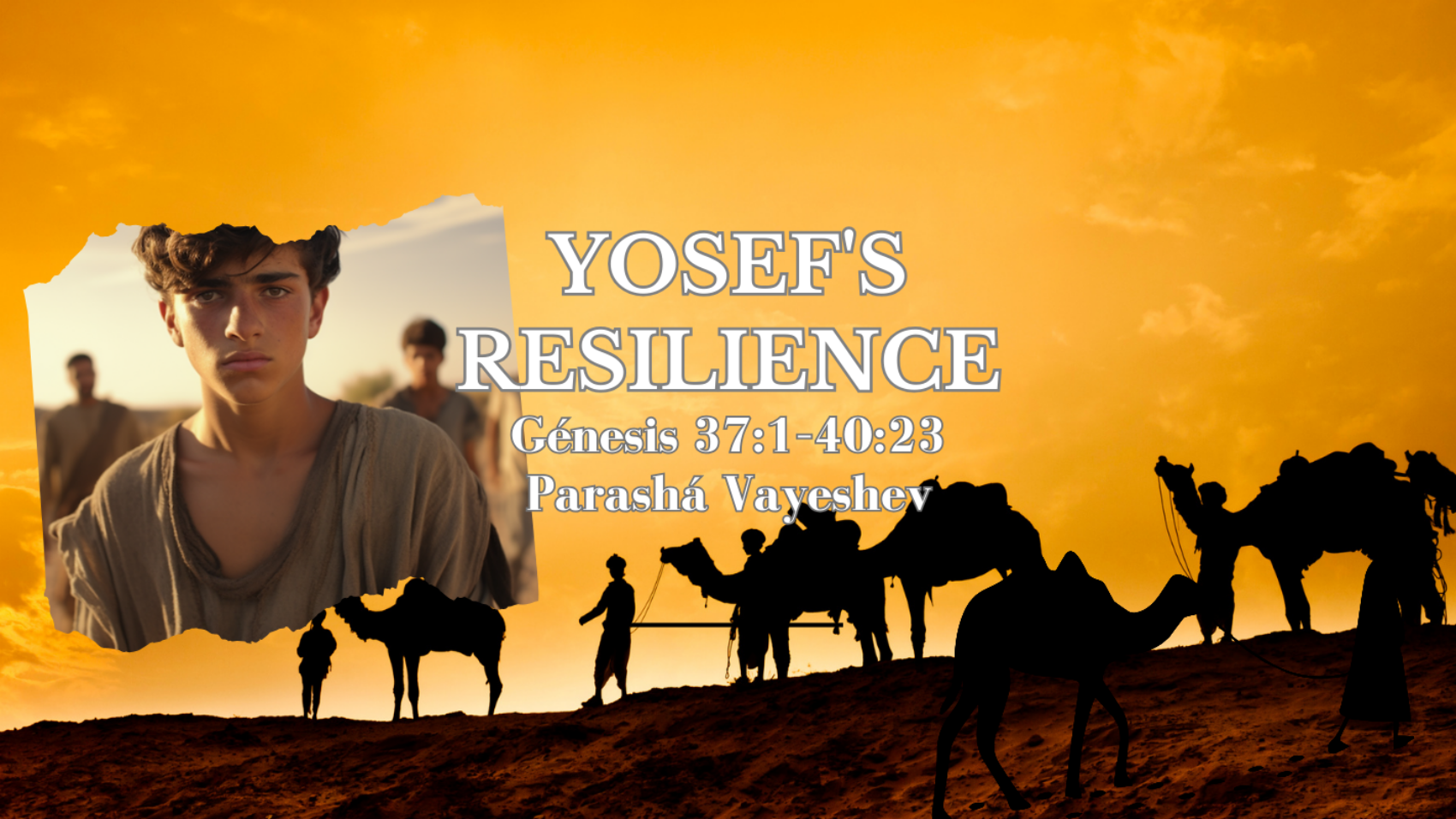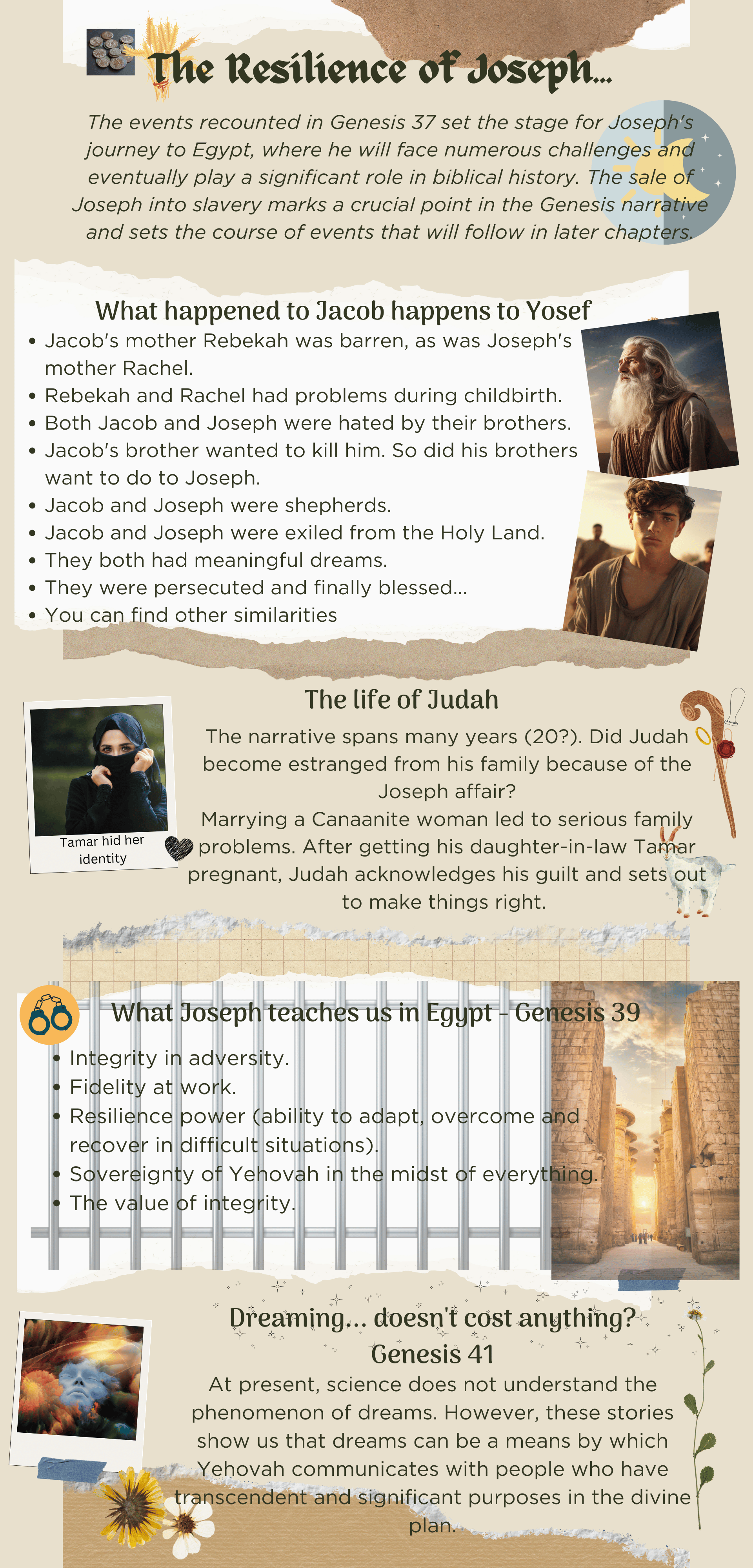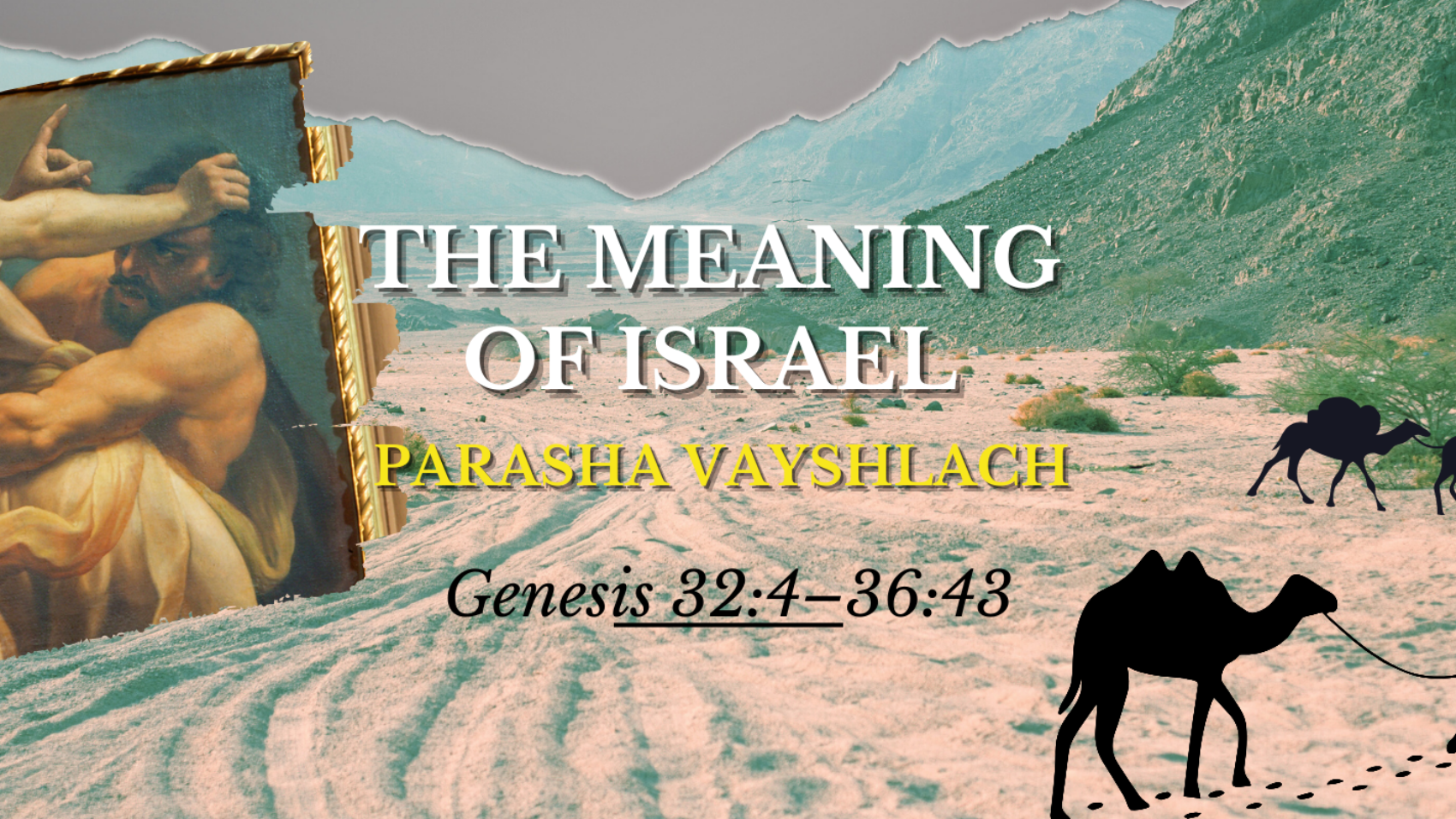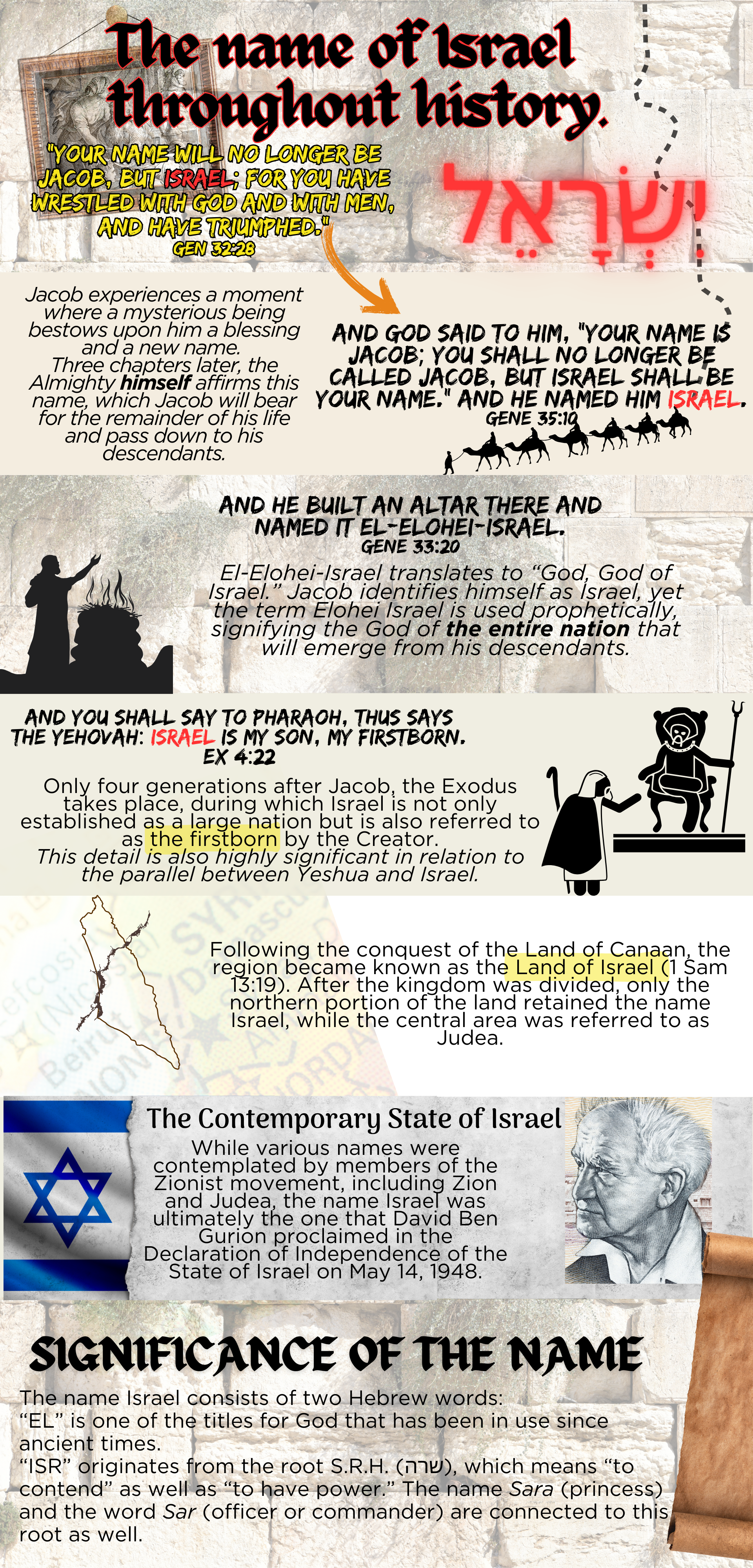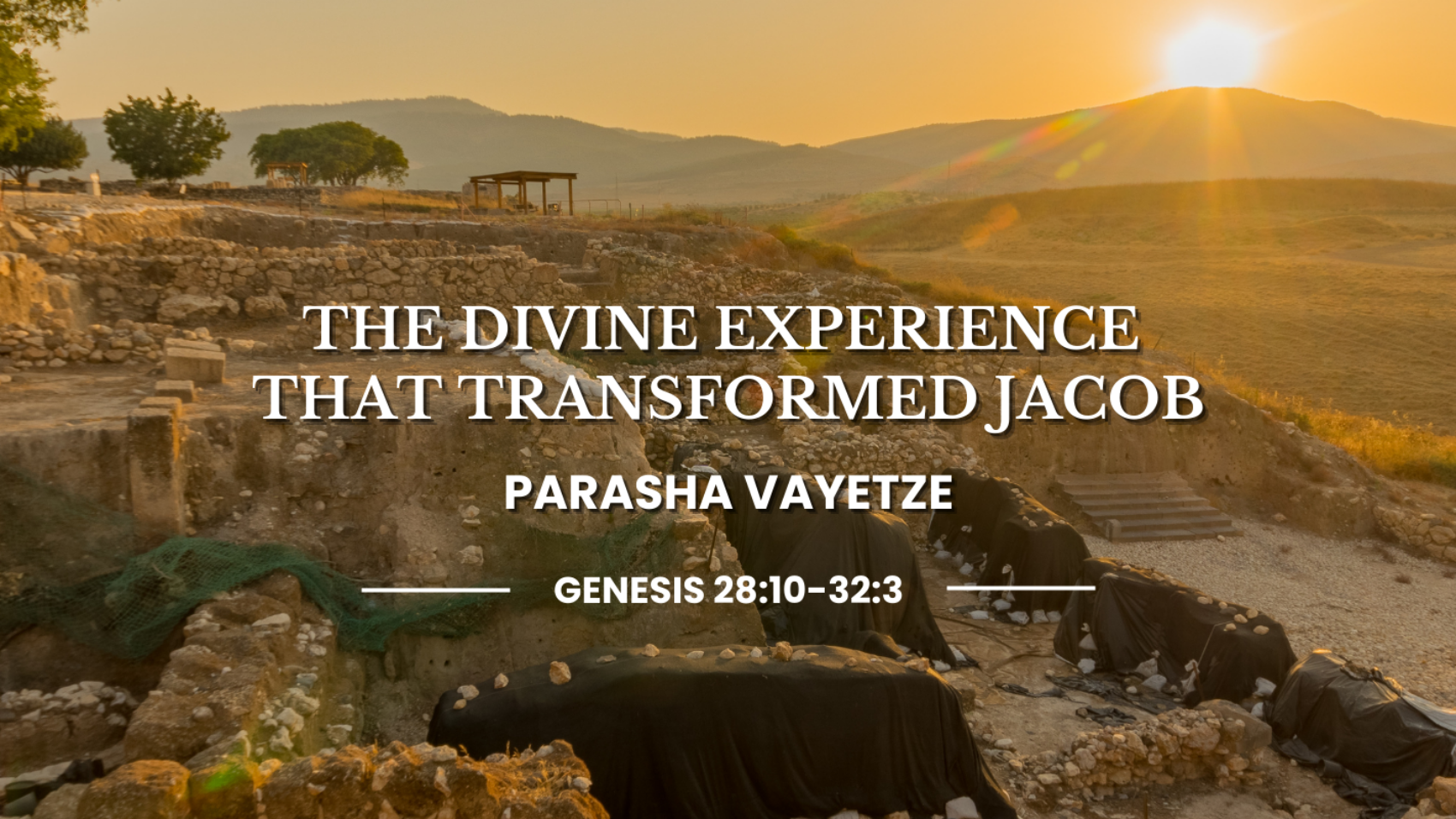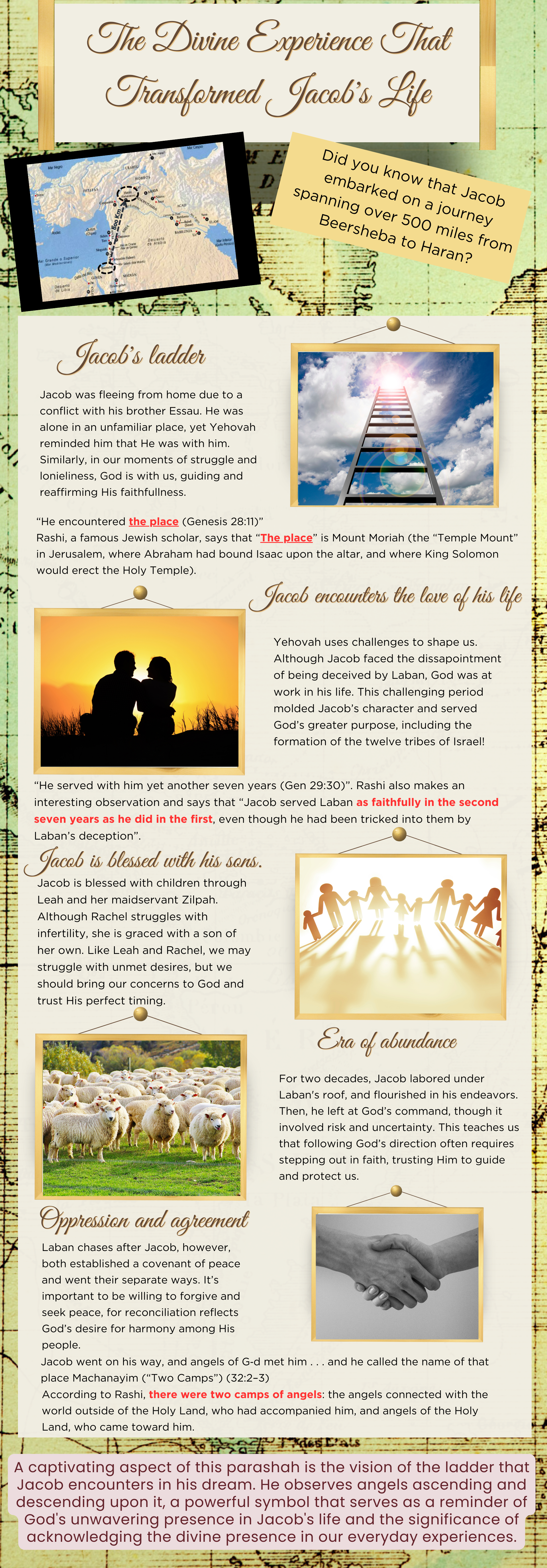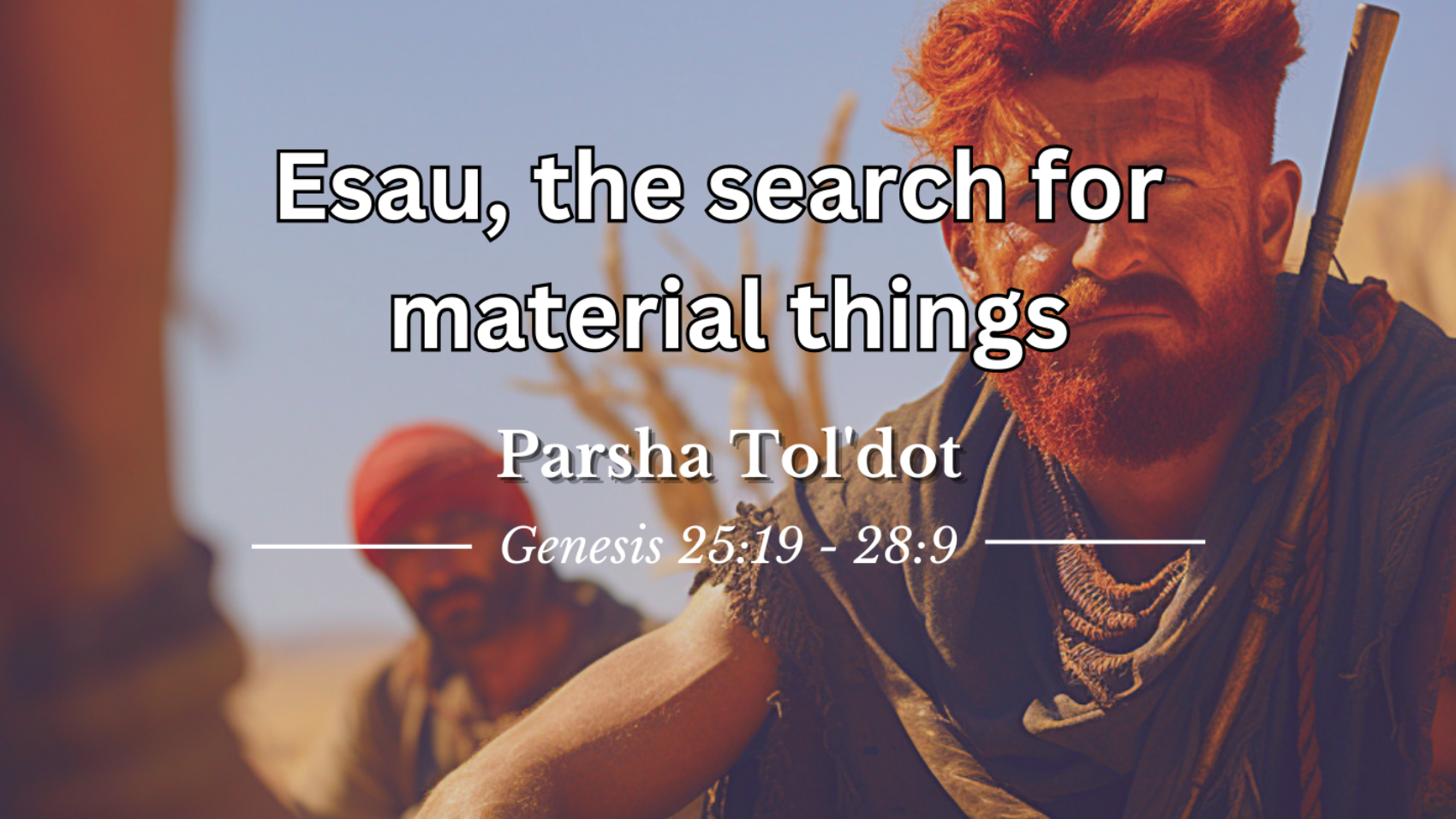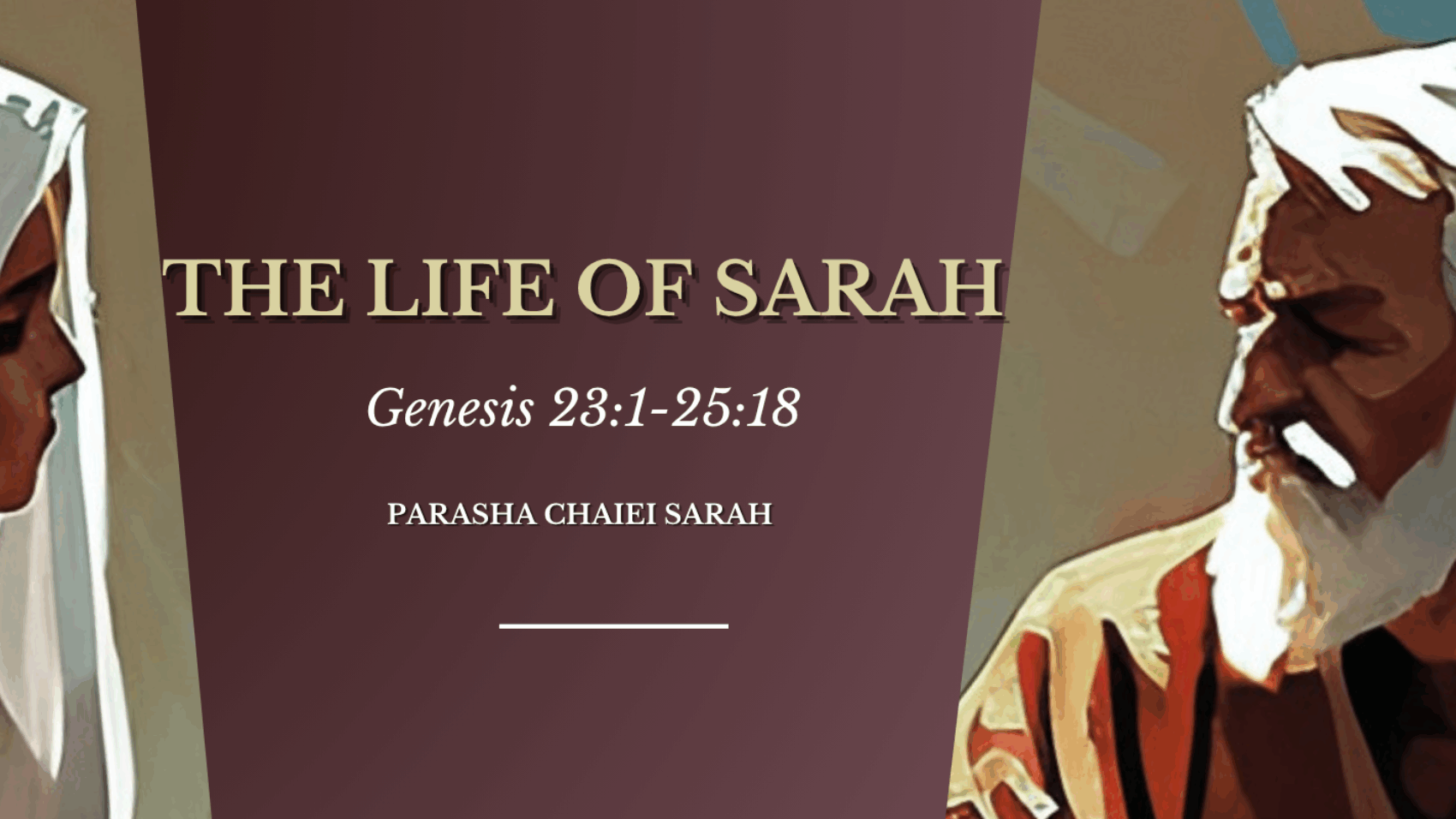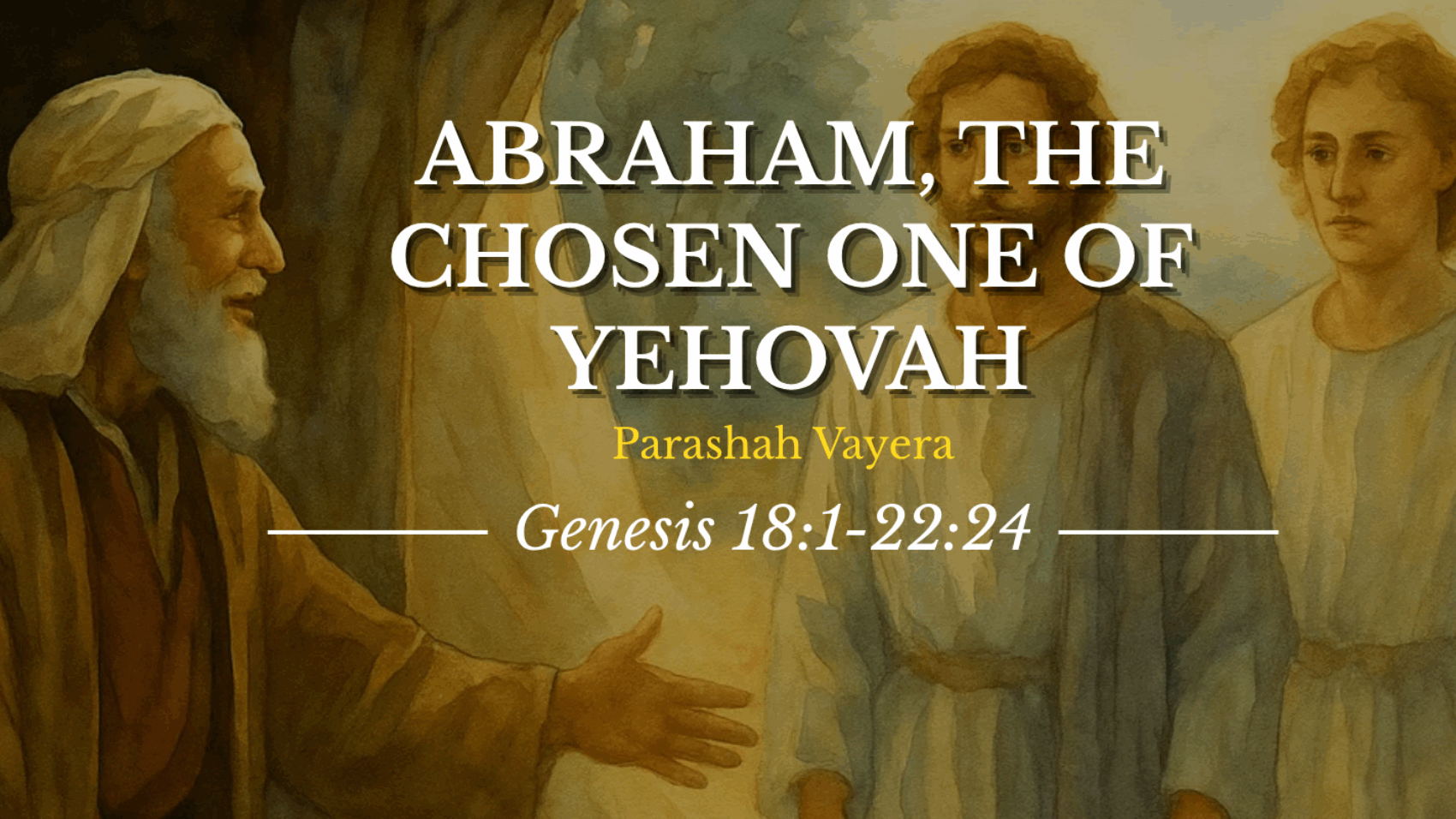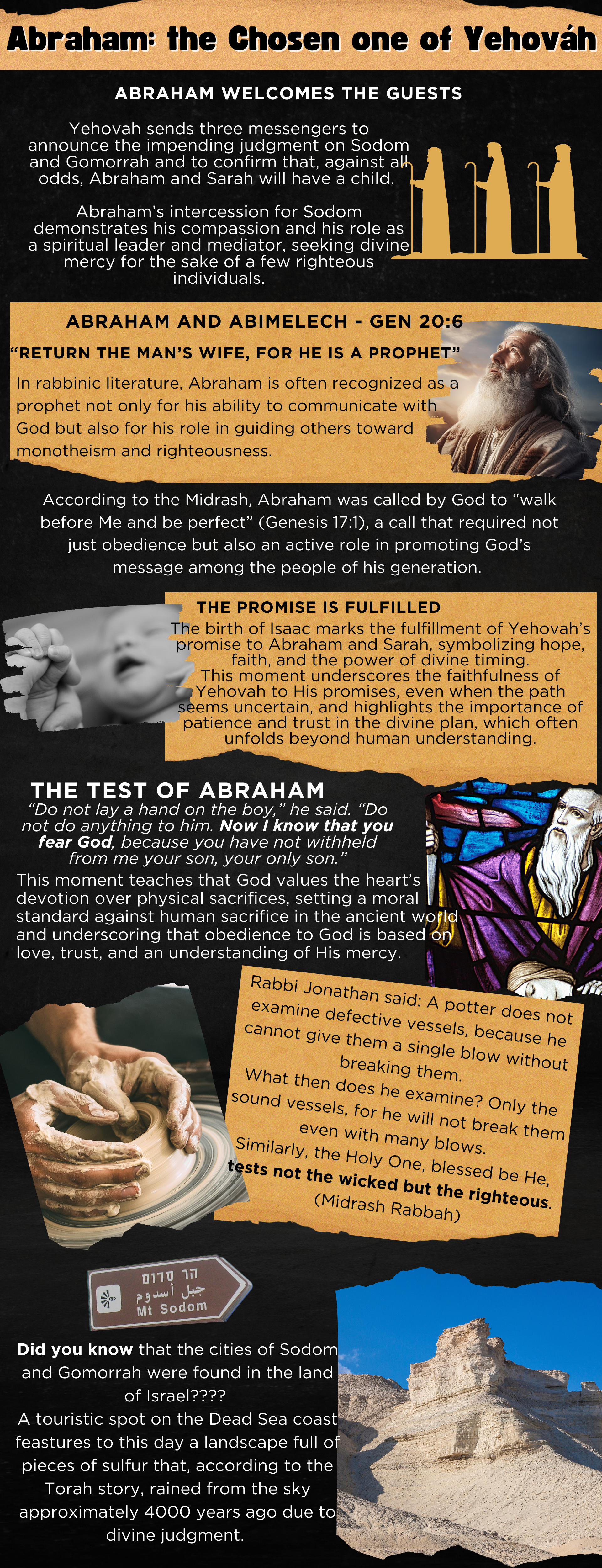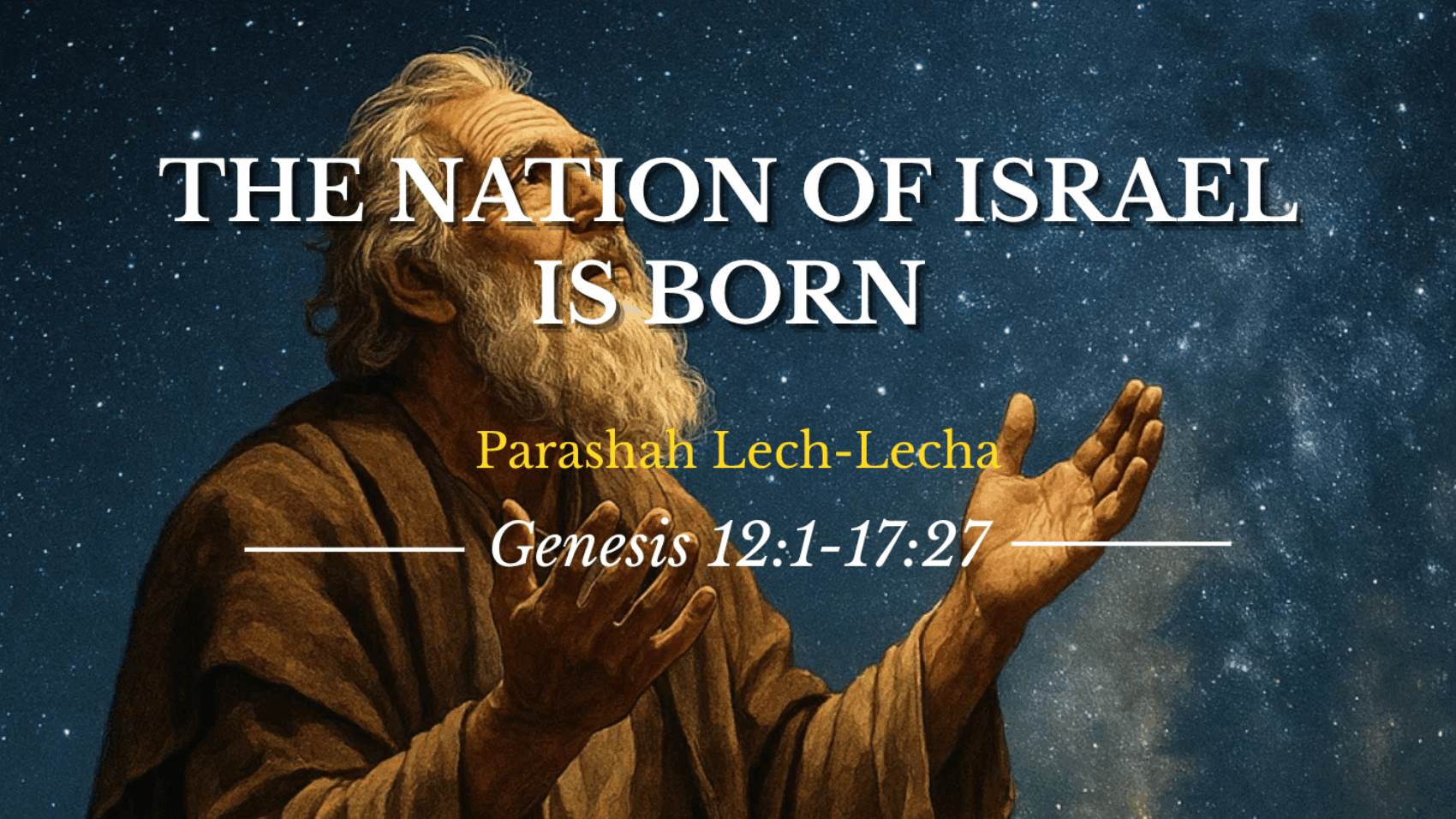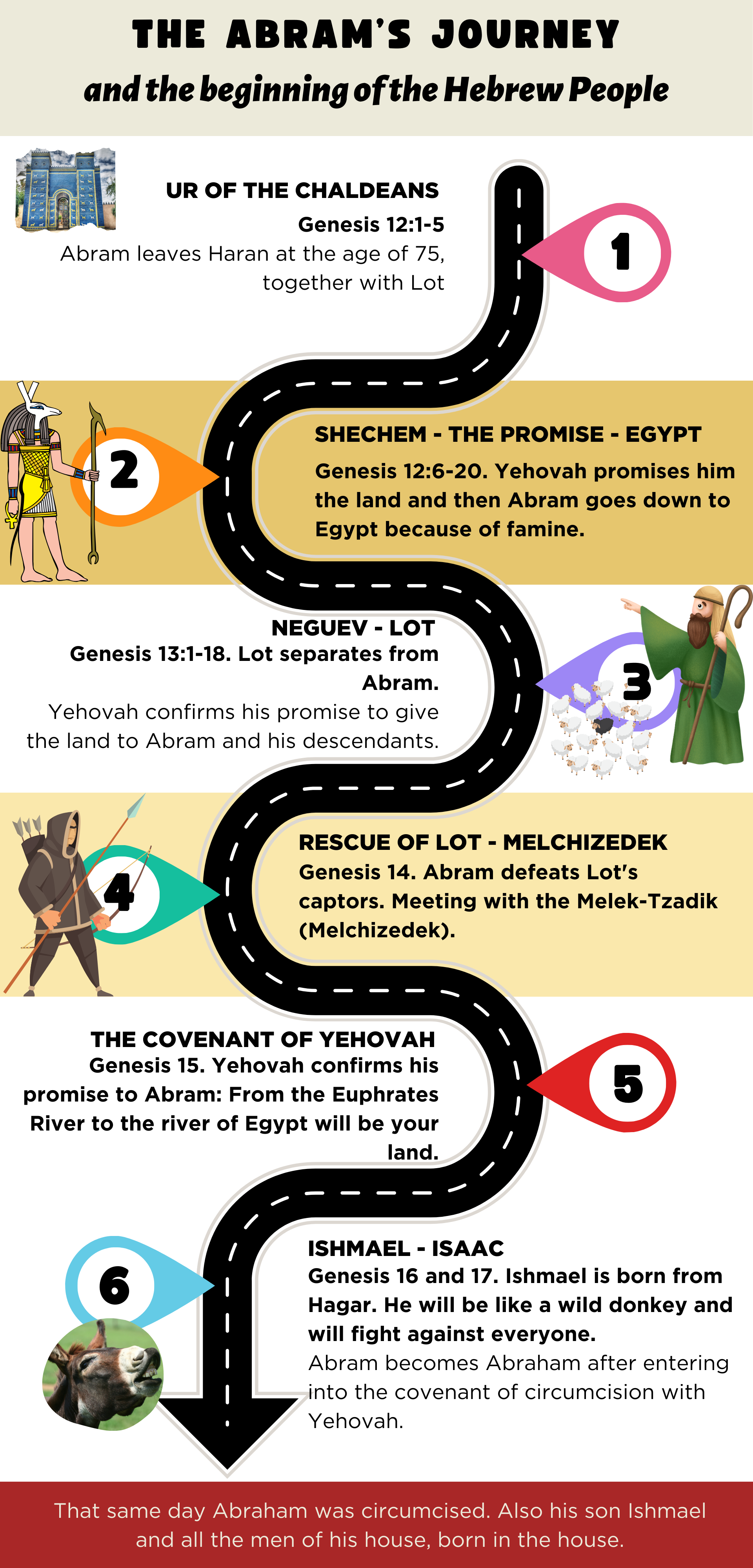We are about to finish reading the book of the Beginning: Genesis. Being already in the last moments of his life, Jacob gave clear instructions to his sons regarding his burial. His body was to be taken to Canaan to be placed in the cave of Machpelah that his grandfather Avraham had acquired years before.
The Scriptures record three properties that the Israelites acquired for money from the Canaanites: the first, the burial cave purchased by Abraham from Ephron the Hittite; the second, that acquired by Jacob from Hamor; and the third one acquired by King David, the threshing floor of Araunah as recorded in 2Samuel 24. 24; these three places testify to the legal ownership of the land by the people of Israel and their right to possess it, although it is much more conclusive that it was Yehovah who promised it to them as an inheritance.
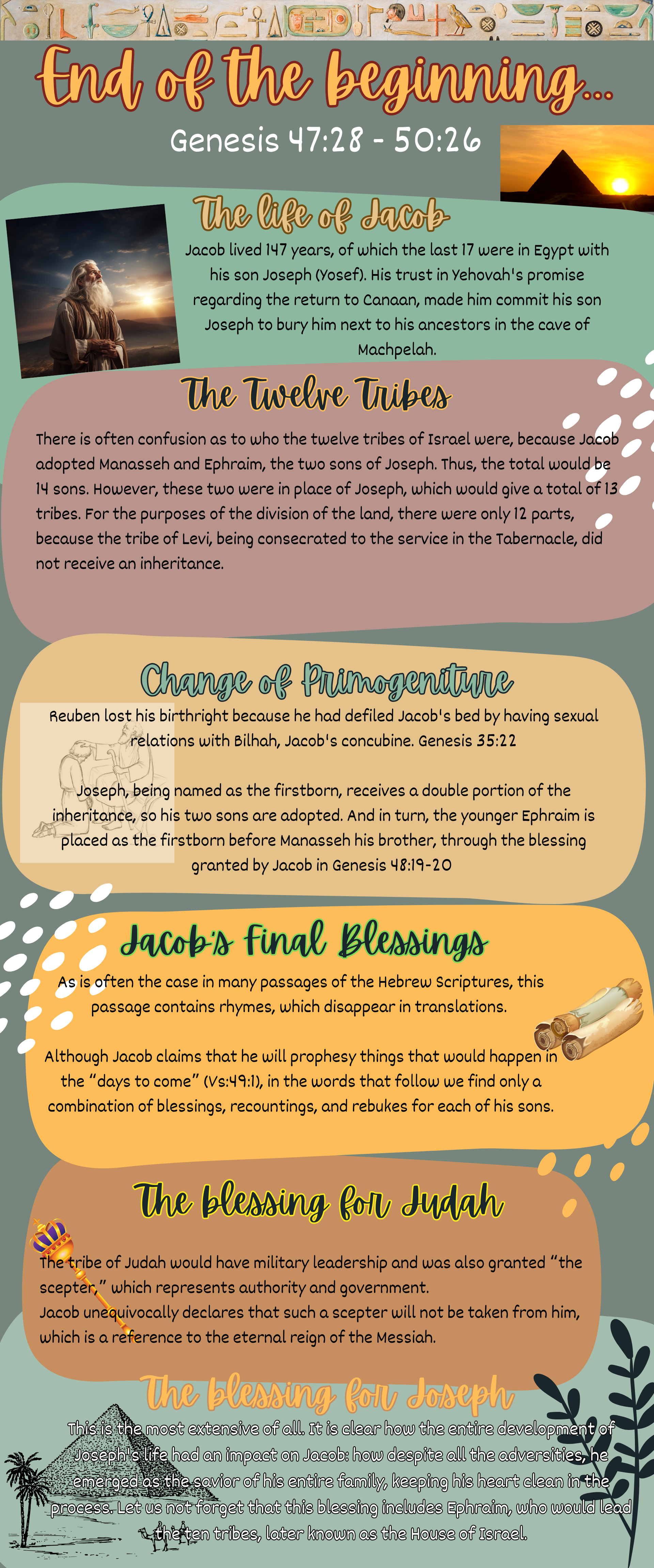
Let us pay special attention to the blessing on Joseph, for we are living in the most exciting time in history, witnessing the fulfillment of many prophecies; so that what was foreseen to happen, has almost been fulfilled.
Yehovah, our Father, is about to finish his plan to achieve his goal: The restoration of all things to their original order. Yes, all this history leads to the restoration of His sovereignty and authority throughout the Universe.
In these days Yehovah is awakening all of us who are descendants of the lost tribes and He is also beginning to awaken Yahudah, whom we know as: the Jews. They are our brothers and one day we will finally be together, as foreseen in Ezekiel 37 and in many other parts of Scripture.
We need to learn from them what so many centuries of maintaining their identity have taught them; but they also need to learn from us who is the true Messiah: Yeshua, to whom we too must return. I am not talking about the westernized Jesus, but the authentic Messiah, the Yahudite, the one with Hebrew roots, the one who modeled keeping the Torah without abolishing it, the one who kept the Shabbat and the Feasts of Yehovah, the one who came to seek and save what was lost.
